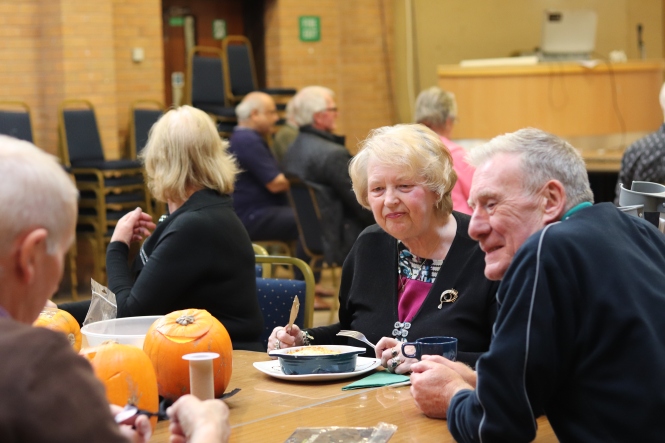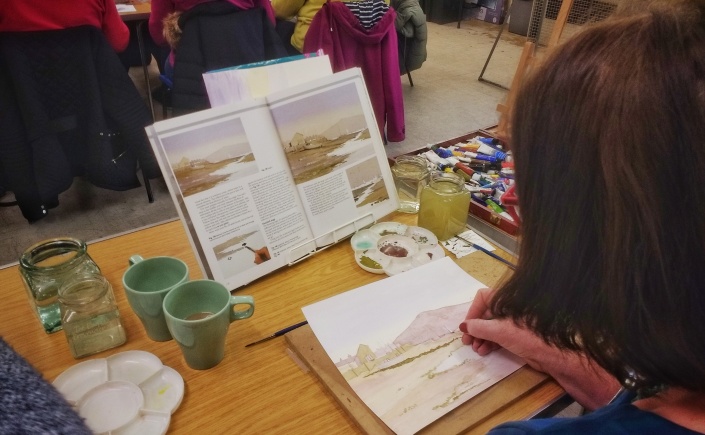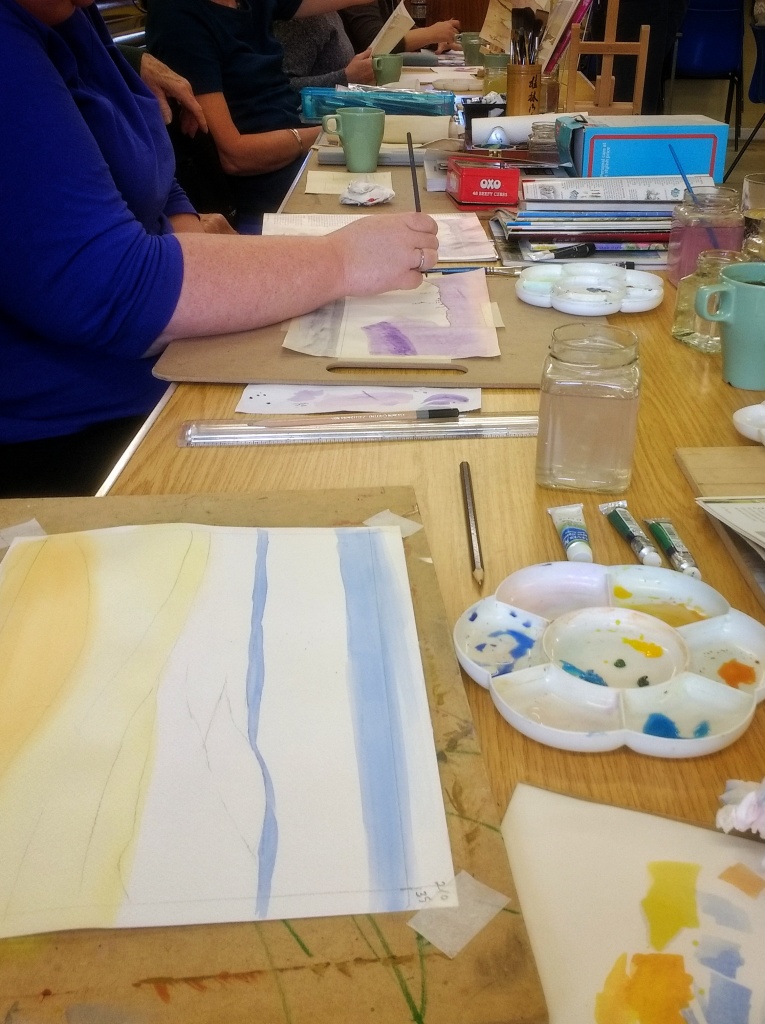At the Dudley CVS Annual Awards and AGM this year we spotlighted some of the amazing groups and individuals we supported during 2018/19. One of those groups was Airtime, a weekly group for members of the community with COPD and related conditions, developed by Integrated Plus and Healthwatch Dudley. Our work with the group over the last year has helped them to become independent and sustainable.
Dudley now has a sustained peer support group for individuals with chronic lung conditions which helps to improve confidence and quality of life. The group have now taken on leadership responsibilities and contribute to the health and wellbeing of its members. They are now looking to expand and find others with similar conditions who may like to join their group.
Members of Airtime understand how important it is to have the opportunity to meet with others experiencing similar challenges in a safe and caring environment. One of the groups main aims is to combat the feeling of isolation by giving people a chance to meet like-minded people with similar lung conditions in social surroundings. It’s a space to relieve stress, to laugh and feel the camaraderie. You can get involved in many activities including arts and crafts, bingo and quizzes, gentle exercises such as seated yoga, tai-chi and meditation. There are informative and educational talks, films, and musical performances.
We caught up with Angela, Dave and Jean at DY1 Community Building on Stafford Street, where the group is held each Thursday from 1pm, to find out how more about their conditions, the impact that Airtime has had on their lives and their exciting plans to develop the group for the benefit of members.
Angela has been coming to Airtime since 2016, she has emphysema, a condition that causes shortness of breath,
“Suddenly I had somewhere to go where there were people with the same problems as me. Everybody understands how you feel and we help each other, so you’re not trying to deal with it on your own.
Airtime has given me another interest. With my husband at work all day, I was at home on my own a lot. If you’re sitting at home looking at four walls you can get quite depressed. It doesn’t start until 1, but you’ll find most people turn up in the café at 12 just to have a chat. Suddenly you are not so isolated, you’ve got a friend at the end of the phone. Your mental and physical health improves. It’s like a family.
We talk to each other in a language we can all understand. We can learn things from each other that a consultant might not talk to you about.
There is a core of 20 people that come frequently and others occasionally. It’s just good to come out, talk to somebody and have a laugh. We like the group to bring ideas forward so everyone is involved in planning what we do.
Since joining Airtime, I’ve actually gone on to join many other groups. I’m a Healthwatch Community Reporter, I’m also a part of a research group. It gives you the feeling that you count again as a person, suddenly you are not just a patient.”
The group also have a Christmas party meal with entertainment where they have a raffle to help them to raise money for the group’s activities.
Jean has long term bronchiectasis which she developed when she was 10. “My condition is progressive, but very slowly. You can live with it, but if you get an infection it’s a struggle. You get through it, but it limits your life.
I love coming to Airtime, I’ve met some really nice people. You build some really good friendships. I met Dave at Airtime, and he’s now one of my best friends. The main thing is to get up off your settee and get out! Every Thursday, I think, it’s Airtime today, and I love it.
The respiratory nurses that come have been massively helpful, although it’s stuff we’ve all been through before, sometimes it goes out of your mind and for them to come in and refresh your memory is massively helpful.”
Dave has had Bronchiectasis for 25 years, he holds the position of Treasurer and also likes to organise quizzes for the group, “I lost my wife about 7 years ago, and when she went, I was completely lost. After 2 years of lying on the settee, I thought, I can’t carry on like this, I’ve got to do something. That’s when I found out about Airtime. For the first time I went dancing, and I met Kathy, who I’ve been with ever since. It’s given me the confidence to go out and meet new people and it’s also something to look forward to.”
The group have been running independently for 6 months now, they are planning activities and making their own decisions. Dudley CVS supported them to look at the frameworks within which they could operate, and the implications of running the group independently. Together they developed a simple constitution and elected the first committee to run the group democratically. Airtime was one amongst 200 hundred not-for-profits we supported last year.
Dave said, “Looking after Airtime now and being part of the committee has given me an extra lease in life. Now I do extra things for the group which I really enjoy. It’s brought me out of myself. Being treasurer also gives me something to do at home.
We ask new people to take a survey when they join Airtime, after 6 months we ask them to take the survey again to see if coming to the group has made a difference to their lives. Nearly everybody has commented about being able to get out of the house, most people were isolated. For some people, Airtime is the only thing they do. You can see people improving, it helps them to manage their condition.”
After our chat, we went to meet the rest of the group who were busy getting creative carving pumpkins and making Halloween crafts. The group also had a special visit from Chief Superintendent, Sally Bourner, who presented them with their Dudley CVS Spotlight certificate, a surprise for the benefit of those who weren’t present at the awards evening.
So, what can you expect if you dropped by Airtime? A warm welcome that’s for sure! A place to meet new people, take part in fun activities and listen to talks from respiratory experts and other guests. The chance to mix with other people living with respiratory conditions and to make friends. A lovely afternoon out for free with a superb supply of tea and biscuits of course!
If you are interested in joining Airtime Dudley, it’s free and runs each Thursday from 1pm – 3pm at DY1 Community Building, Stafford Street, Dudley, DY1 1RT and is open to anyone suffering from chronic lung conditions such as COPD, pulmonary fibrosis or bronchiectasis.
New members are very welcome.
For further information please feel free to contact Angela Rea angela2ree@gmail.com or Dave Taylor on axnfel@talktalk.net


















 Our network now also includes GP practice staff such as receptionists, healthcare assistants and Practice Managers, as a result of NHS England funding allocated through Dudley Clinical Commissioning Group, which has supported practice staff to become care navigators. The idea is to help people to play a greater role in their own health and care, by being signposted to non-medical services to improve personal health, wellbeing and independence.
Our network now also includes GP practice staff such as receptionists, healthcare assistants and Practice Managers, as a result of NHS England funding allocated through Dudley Clinical Commissioning Group, which has supported practice staff to become care navigators. The idea is to help people to play a greater role in their own health and care, by being signposted to non-medical services to improve personal health, wellbeing and independence.




















